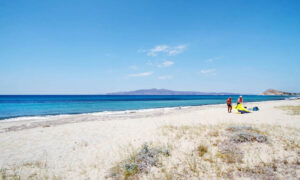Good news for train travelers in Europe this summer: Several countries have taken measures to reduce
the travel costs for residents and tourists, hoping to minimize the use of cars, to provide an option to avoid difficulties in air travel and to address environmental concerns.
Check local transport providers to see the specific rules for trains, buses, and trams because this isn’t as straightforward as it sounds.
Different countries have different rules. Some apply to the entire country; some only to specific cites.
Some are experimental, some have even been revoked because passengers complained about overcrowding and bad services and taxpayers were unhappy about the extra costs, which they have to fund.
Here are the details by location:
Spain
Spain is the latest country to introduce the scheme. From 1 September to 31 December, Cercania
Trains of RENFE, the state-owned railway company, will be completely free. But, there is a catch. The distance travelled has to be just less than 300 kilometers.
Single tickets are not allowed. Multi-journey tickets must include a minimum of 10 return trips. Season card holders and commuters as well as digital nomads can enjoy a 50-percent discount on metropolitan routes.
What happens after to 31 December is anyone’s guess.
Luxembourg
On 29 February 2020, Luxembourg became the first country in the world to make all public transport
free to use. This applies to international commuters and tourists al well. But of course, you still have to pay for First Class.
Germany
Germany is a country that is an example for reduced fare. The Bundestag has introduced a heavily
discounted monthly transportation pass letting people ride regional transport like buses and local trains
for 9 euros.
It is unclear what the fares are for long distance train travel in Germany – for instance for instance
from Hamburg to Munich – and the scheme is only in operation during June, July and August. To make
things even more difficult for long distance rail travel there are a variety of rail passes and bahn passes
to choose from, all with their own rules.
There has been a substantial number of complications because so many people want to take bicycles to popular tourist destinations so the DB website states that DB personnel can limit the number of bikes. And as you might imagine, trains are a LOT more popular now, so expect crowds. The good news is, media reports state traffic is decreasing on highways, which doesn’t always happen with these fare experiments.
Malta
From 1 October, Malta will be the second country in the EU to make it’s public transport free. Customers have to be Tallinja Cardholders and age restrictions apply. Transport is already free for the majority of Maltese.
Lisbon
As of summer 2022, Lisbon introduces a free public transport scheme that applies to all residents under
12, students up to 23 and seniors over 65. This includes the metro, buses and the yellow trams that crisscross the city.
Other limited programs
Amsterdam
Amsterdam just launched a new 1 euro day ticket for public transportation including the trams. This is for locals, not tourists, so be prepared to show your Verblijfstitel.
Tallinn
In 2013, Tallinn the capital of Estonia became the first capital in the world to introduce free public transport. It now also includes inner city trains but is only available to permanent Tallinn residents. If you can’t show proof, visitors and tourists have to pay full fare.
Dunkerque, France
In 2018, Dunkerque overhauled its public transport system and in the process made it free of charge. EU capitals such as Vienna or Paris offer reduced day passes for public transport sometimes including
admissions to attractions and museum.
Hasslet, Belgium
The town of Hasselt in Belgium was very advanced as far as free public transport was concerned as the
introduced the scheme in 1997. However, the decision was reversed in 2013 due to the mounting
costs and politics. Now travelers have to pay for normal tickets again.
See more here about Europe’s trains in Dispatches’ archives.















